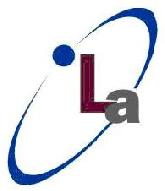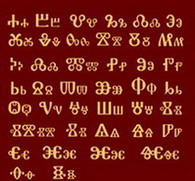| Páginas sobre el tema: < [1 2 3] > |
Off topic: Translating one phrase into many different languages... Autor de la hebra: Clare Barnes
|
|---|
Morratrad (X) 
España
Local time: 23:18
inglés al español
+ ...
| Galician and Portuguese | May 10, 2007 |
In Galician:
"Grazas e deica outra"
In Portuguese:
"Obrigado e até breve"
[Edited at 2007-05-10 10:55]
| | | |
Leena vom Hofe 
Alemania
Local time: 23:18
Miembro 2005
inglés al alemán
+ ...
In German it depends a bit on the person you are talking to...do you know him as a friend? Then you'd say: "Danke und komm bald wieder"
If you do not know him or you want to address hin formally you would say: "Danke und kommen Sie bald wieder" or "danke und besuchen Sie uns bald wieder!"
Without knowing if you address someone formally or not you ca always say: "Danke und bis bald" (impersonal)
HTH (even if there is more than one solution)
Leen... See more In German it depends a bit on the person you are talking to...do you know him as a friend? Then you'd say: "Danke und komm bald wieder"
If you do not know him or you want to address hin formally you would say: "Danke und kommen Sie bald wieder" or "danke und besuchen Sie uns bald wieder!"
Without knowing if you address someone formally or not you ca always say: "Danke und bis bald" (impersonal)
HTH (even if there is more than one solution)
Leena
[Edited at 2007-05-10 11:32] ▲ Collapse
| | | |
"Köszönöm/köszönjük (it depends on the person are tahnking: if is you than "köszönöm" or if more people are thanking than "köszönjük") és a mielőbbi viszontlátásra"
Bye,
Katalin
| | | |
Marion Lurf 
Reino Unido
Local time: 22:18
inglés al alemán
+ ...
Here's another one to add to Leena's suggestions to make your choice even harder, Clare:
"Danke und auf ein baldiges Wiedersehen", which is also impersonal, but a bit more formal than "Danke und bis bald".
| | |
|
|
|
Rafa Lombardino
Estados Unidos
Local time: 14:18
Miembro 2005
inglés al portugués
+ ...
| Portuguese for Brazil | May 10, 2007 |
"Obrigado e volte sempre"
or, more freely:
"Obrigado pela preferência"
(literally --> "thank you for your business", already implying that the customer will keep coming back for more.)
| | | |
| |
[quote]Clare Barnes wrote:
"Thanks and come back soon"
"Благодарим и до скоро виждане!"
In Bulgarian:)
| | | |
Thanks and come back soon.
Due to Polish grammar, I should give my answer in variants:
Single person to a single person:
Dziękuję bardzo i wróć wkrótce.
Single person to a group:
Dziękuję bardzo i wróćcie wkrótce.
Group to a single person:
Dziękujemy bardzo i wróć wkrótce.
Group to a group:
Dziękujemy bardzo i wróćcie wkrótce.
 ... See more ... See more Thanks and come back soon.
Due to Polish grammar, I should give my answer in variants:
Single person to a single person:
Dziękuję bardzo i wróć wkrótce.
Single person to a group:
Dziękuję bardzo i wróćcie wkrótce.
Group to a single person:
Dziękujemy bardzo i wróć wkrótce.
Group to a group:
Dziękujemy bardzo i wróćcie wkrótce.

Andrzej Mierzejewski ▲ Collapse
| | |
|
|
|
| Merci et a bientot! | May 10, 2007 |
In French you could say:
Merci et a bientot!
(I am sorry, I have an English laptop and don't know how to write the French accents on it. There is an accent grave (going up to down from left to right) on the "a" and an accent circonflexe on the "o" of bientot (it looks like this ^).
As I work from French to English this problem never occured to me before...)
| | | |
| French correction... | May 10, 2007 |
Hi I just want to amend one thing in my comment:
in French there is a space between the sentence and the !
It reads then
Merci et a bientot !
(with the accents as explained before).
| | | |
Agnieszka Hayward (X)
Polonia
Local time: 23:18
alemán al polaco
+ ...
While agreeing with Andrzej,
I'd like to post another one ("we" talk to "him/ her/ them/ you)
(mainly applicable in business situations though):
Dziękujemy i zapraszamy ponownie.
Actually it says "thank you, call again", but it sounds a bit more natural to my Polish ear.
hth
PS.: Could you provide us with... some context?
As in, who talks to whom and what the s... See more While agreeing with Andrzej,
I'd like to post another one ("we" talk to "him/ her/ them/ you)
(mainly applicable in business situations though):
Dziękujemy i zapraszamy ponownie.
Actually it says "thank you, call again", but it sounds a bit more natural to my Polish ear.
hth
PS.: Could you provide us with... some context?
As in, who talks to whom and what the situation is.
[Edited at 2007-05-10 18:26] ▲ Collapse
| | | |
Misaotra, dia mandra-pihaona.
| | |
|
|
|
| re Polish #2 | May 11, 2007 |
tygru wrote:
PS.: Could you provide us with... some context? 
As in, who talks to whom and what the situation is.
Good idea. Polish language is very strongly context-dependent. My replies regarded informal relations between people.
Rgds
Andrzej Mierzejewski
| | | |
Danu 
Eritrea
Local time: 01:18
Miembro 2006
inglés al tigrinia
+ ...
| Tigrinya and Amharic | May 12, 2007 |
I will send you Tigrinya and Amharic versions of the phrase later tomorrow.
Thanks,
Dan
| | | |
| did you get it in Italian? | May 13, 2007 |
Here it is in italian: ("Thanks and come back soon")
Grazie mille, é a presto (General, cordial expression..)
Grazie tante, é fatti vedere (cordial/coloquial - emphasis on the V)
Grazie, torna presto (Literal Trans - not really valid)
Grazie, é spero di rivederti presto (friendly)
These could go on and on depending on your relationship with the person of course!!
Kind regards.
Mat..
| | | |
| Páginas sobre el tema: < [1 2 3] > |










 ...
... 



